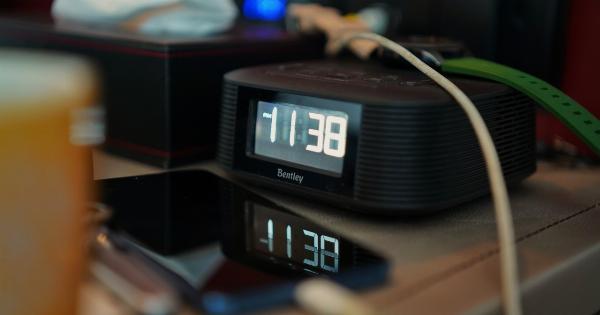For many women, periods can be a challenging time that comes with a range of uncomfortable symptoms. However, with the right techniques and tools, it’s possible to manage these symptoms and make periods a more manageable experience.
In this ultimate guide, we’ll explore some of the best tips and tricks for managing periods with ease.
1. Understand Your Menstrual Cycle
The first step in managing your periods with ease is to understand your menstrual cycle. This involves tracking your periods, including the start date, end date, and symptoms you experience.
You can use a variety of tools to track your cycle, including period tracking apps, calendars, and journals.
Understanding your menstrual cycle can help you predict when your next period is due, as well as the days when you’re most likely to experience symptoms like cramps, bloating, and mood swings.
Armed with this knowledge, you can plan ahead and be better prepared for your period.
2. Invest in Quality Period Products
The type of period product you use can make a big difference in how comfortable and confident you feel during your period.
While there are many options to choose from, including pads, tampons, and menstrual cups, it’s important to find a product that works for you.
Investing in quality period products can also reduce the risk of leaks and other embarrassing moments. Look for products that are made with high-quality materials, offer maximum absorbency, and provide a comfortable fit.
3. Prioritize Self-Care
During your period, it’s important to prioritize self-care. This means taking time to rest, relax, and engage in activities that make you feel good. Some effective self-care techniques for periods include:.
- Getting plenty of rest and sleep
- Eating a nutritious, balanced diet
- Staying hydrated with plenty of water
- Engaging in light exercise, such as yoga or stretching
- Using heat therapy to relieve cramps and other symptoms
- Taking a warm bath or shower
- Practicing stress-reducing techniques, such as meditation or deep breathing
By practicing self-care during your period, you can reduce stress and anxiety, alleviate symptoms, and feel more comfortable and confident.
4. Consider Natural Remedies
In addition to traditional period products, there are also a range of natural remedies that can help alleviate menstrual symptoms. Some effective natural remedies include:.
- Herbal teas, such as ginger or chamomile, which can reduce inflammation and relieve cramps
- Aromatherapy, using essential oils like lavender or peppermint, which can help alleviate stress and anxiety
- Acupuncture, which can help balance hormones and reduce pain and inflammation
- Massage therapy, which can help reduce muscle tension and improve circulation
- Dietary supplements, such as magnesium or vitamin B6, which can help reduce symptoms
However, it’s important to talk to your doctor before trying any natural remedies, as some may interact with medications or have side effects.
5. Be Prepared for Emergencies
Even with the best planning and preparation, emergencies can happen during your period. It’s important to be prepared for any situation, whether it’s a sudden leak or an unexpectedly heavy flow.
Carry a small emergency kit with you that includes extra period products, wipes, and a change of clothes. If you’re prone to leaks, consider wearing dark or patterned clothing to camouflage any stains.
And if you experience unusually heavy bleeding or severe pain, don’t hesitate to seek medical attention.
6. Practice Good Hygiene
During your period, it’s important to maintain good hygiene to reduce the risk of infections and other health issues. Some important hygiene practices for periods include:.
- Changing your period products regularly, at least every 4-6 hours
- Using gentle, fragrance-free soaps and cleansers to clean your vaginal area
- Avoiding douching or using perfumed products in the vaginal area
- Washing your hands before and after changing period products
- Wearing loose-fitting clothing to allow for air circulation
- Avoiding sexual activity during your period to reduce the risk of infection
By practicing good hygiene during your period, you can help reduce the risk of infections and other health issues.
7. Talk to Your Doctor
If you’re experiencing severe or unusual menstrual symptoms, it’s important to talk to your doctor.
They can help determine if there are any underlying medical issues that need to be addressed, and provide guidance on how to manage your symptoms.
Your doctor may also recommend hormonal birth control or other treatments to help regulate or reduce your menstrual symptoms. Don’t be afraid to ask questions or advocate for your own health needs.
Conclusion
Periods can be a challenging and uncomfortable time for many women, but with the right approach, it’s possible to manage your symptoms and make them a more manageable experience.
By understanding your menstrual cycle, investing in quality period products, prioritizing self-care, considering natural remedies, being prepared for emergencies, practicing good hygiene, and talking to your doctor, you can take charge of your menstrual health and feel more comfortable and confident during your period.































